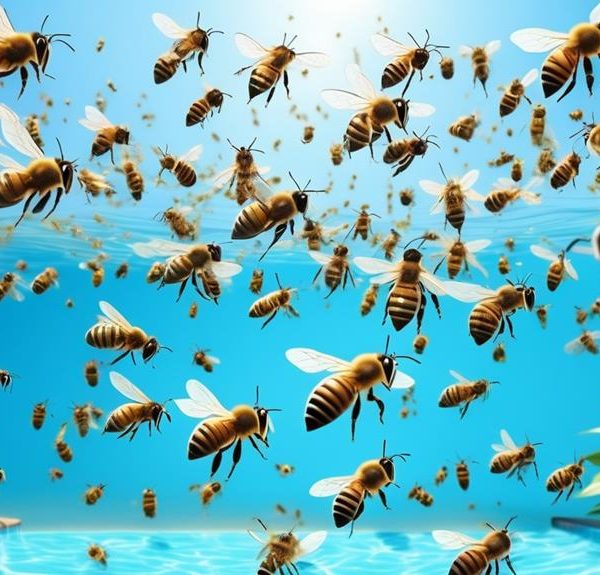Marvel at the fascinating relationship between honey bees and saltwater pools in this deep dive into bee behavior and backyard ecosystems.
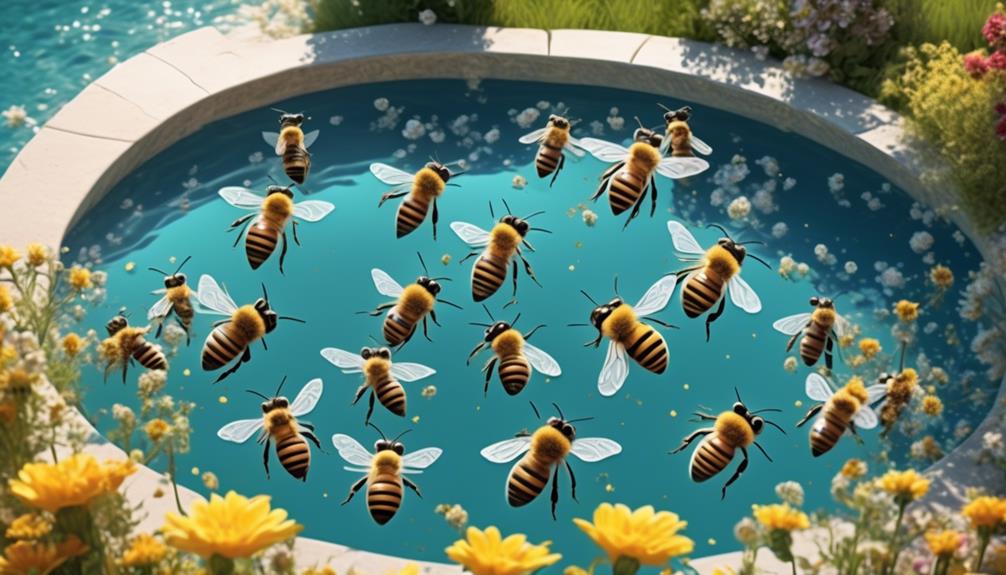
Are Honey Bees Attracted to Salt Water Pools
Did you know that a honey bee can travel up to five miles for a good source of water?
Now, put yourself in the shoes of a beekeeper who's just installed a saltwater pool in their backyard. You're likely wondering whether your new pool will turn into a bee magnet, potentially disrupting the harmony of your hive.
While it's common knowledge that bees need water to survive, the relationship between bees and saltwater pools isn't as widely discussed.
Stay with us, and we'll explore this intriguing topic together.
Key Takeaways
- Bees are attracted to saltwater pools due to higher pH levels and electrolytes.
- Saltwater pools mimic natural saline solutions preferred by bees for hydration and diet.
- Bees might find saltwater pools more appealing than freshwater pools.
- Prevention measures for pool owners include using covers, planting bee-repellent flora, providing alternative water sources, and regular maintenance to reduce bee attraction.
Understanding Honey Bee Attraction
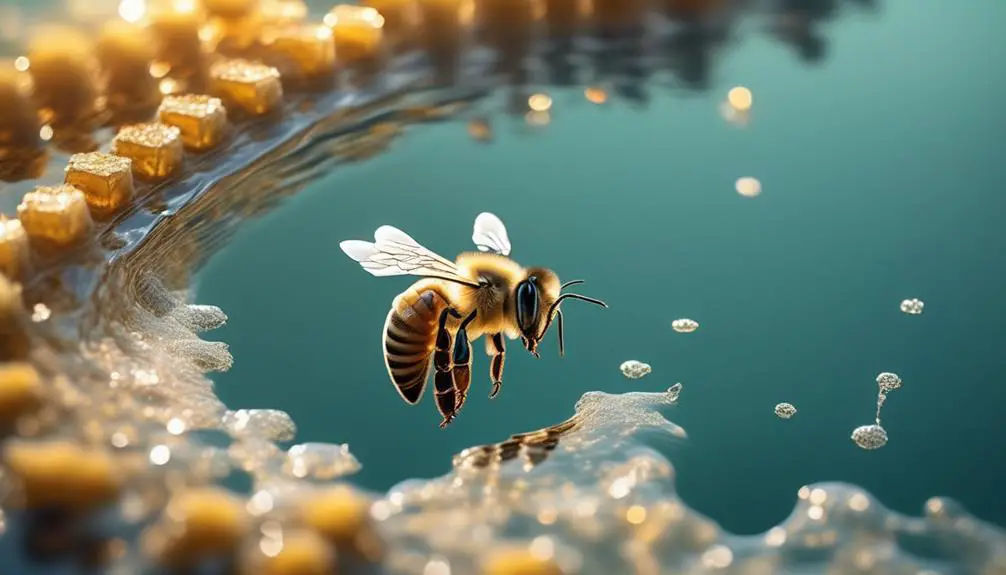
Grasping why honey bees may be attracted to your saltwater pool starts with understanding their natural behaviors and preferences. Honey bees, like all creatures, have specific needs that dictate their attraction to certain environments. They're not just looking for nectar; they also seek out water, which they use for cooling their hive, diluting honey, and hydrating their brood.
Saltwater, intriguingly, plays a significant role in a bee's orientation and navigation. It's one of the cues they use to find their way back to the hive. So, when they stumble across your saltwater pool, it's no surprise they're drawn to it. Furthermore, salt is a necessary mineral for bees, just like it's for humans. It assists in their physiological functions such as digestion and growth.
However, it's not just about salt and water. Bees are also attracted to the bright colors and floral designs often associated with poolside decor, mistaking them for food sources. Therefore, your pool's aesthetics could be unintentionally enticing these insects. So, you can see, understanding honey bee attraction isn't as simple as it might first appear. It's a complex interplay of natural instincts and environmental cues.
The Science of Salt Water Pools
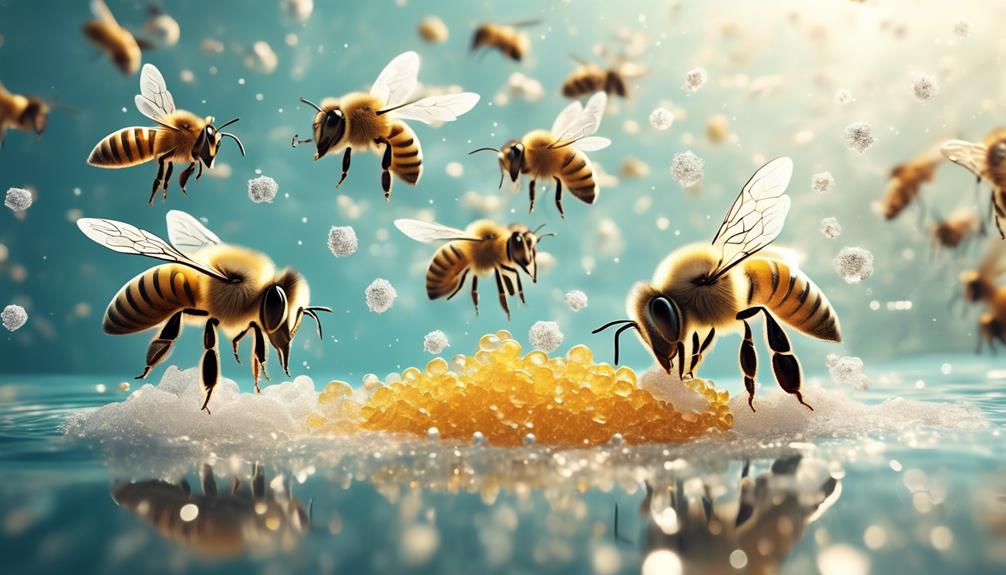
Now that we've explored the reasons behind honey bee attraction to saltwater pools, let's unravel the scientific aspects of these pools to further understand this phenomenon.
Saltwater pools, contrary to what you might believe, aren't exactly like the ocean. They comprise just 10% of the salt content found in seawater. The pool's salt cell, through a process called electrolysis, breaks down dissolved salt into chlorine to sanitize the water. This chlorine isn't as harsh on eyes and skin as traditional pool chlorine, creating a more enjoyable swim environment.
But how does this relate to bees? Well, when the salt cell generates chlorine, it also produces sodium hydroxide, a basic compound that raises the pH of the water. Bees, like many insects, are attracted to water sources with higher pH levels. Additionally, the salt in the water provides necessary electrolytes that bees need for their high-energy flight patterns.
Moreover, saltwater pools often have a fresher smell and taste, which can be more appealing to bees. The combination of these factors — the high pH, the presence of electrolytes, and the attractive smell and taste — make saltwater pools a potential magnet for bees.
How Bees Interact With Water
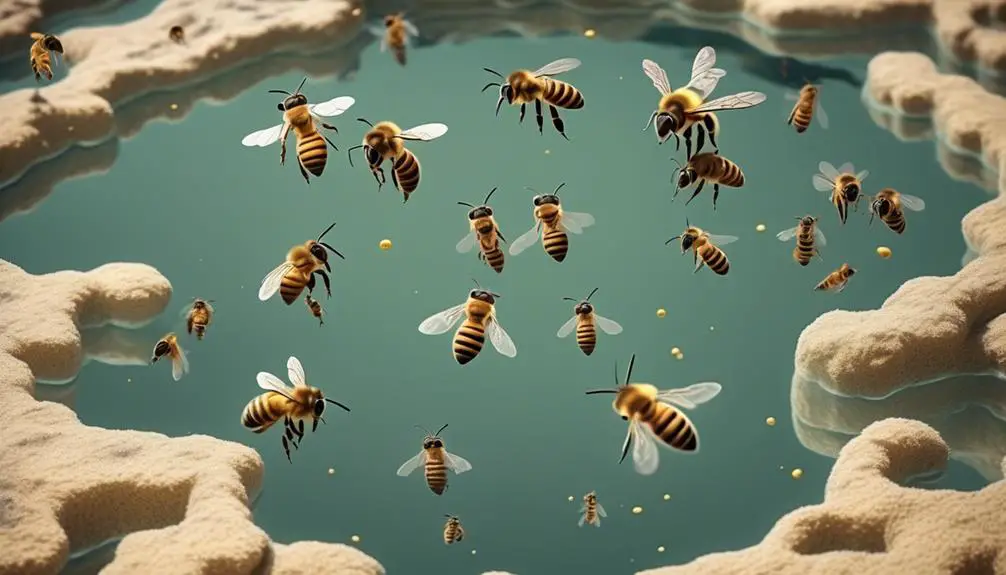
Understanding how bees interact with water provides crucial insight into their attraction to saltwater pools. Bees need water for multiple reasons. Firstly, it's used to dilute honey that's too concentrated. Secondly, water is essential for regulating the hive's temperature, especially during hot summer months.
When it's hot, bees collect water and distribute it throughout the hive. Then, they fan their wings to evaporate the water, creating a cooling effect. This process is similar to the way humans sweat to cool down.
Bees also prefer stagnant water sources over running water. This preference explains why you'll often see them around puddles, ponds, or your swimming pool. They're equipped with tiny hairs on their bodies that help them to float, making it easier for them to collect water from these sources.
However, bees can't distinguish between freshwater and saltwater. They're drawn to water sources mainly by the smell, and the presence of minerals like salt can enhance the scent, leading to an increased attraction. In summary, understanding bees' interaction with water helps unravel the mystery of their attraction to saltwater pools.
Salt Water Pools: A Bee Magnet?
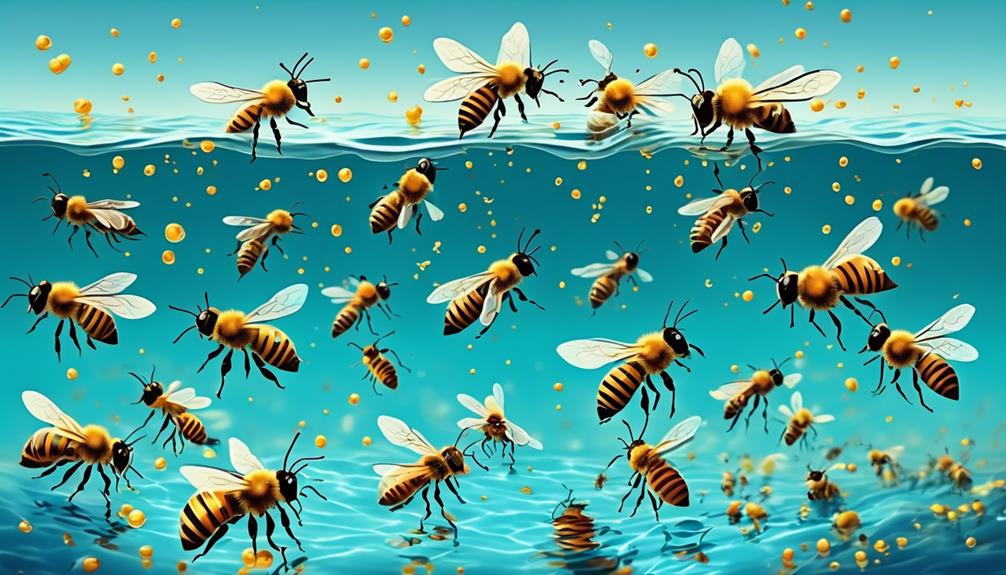
Dipping your toes into a saltwater pool, you mightn't realize that you're not the only one attracted to the refreshing oasis – honey bees are too. The saline content in these pools closely mimics the natural saline solution bees find in their habitats. Salt is a vital nutrient for bees, and a saltwater pool becomes an appealing, easily accessible source.
Scientific studies have shown that honey bees have a preference for sodium-rich water. They're attracted to it not just for hydration but also to carry back to their hives. This salt is essential for their diet, contributing to their overall health and productivity.
However, it's important to note that this doesn't mean your saltwater pool will necessarily become a bee haven. Other factors come into play, such as the presence of other water sources and the pool's proximity to a bee colony. While a saltwater pool might attract bees more than a freshwater pool, it's not a guarantee. It's also worth mentioning that bees are generally not aggressive when collecting water, so there's little risk of them stinging unless disturbed.
Prevention Measures for Pool Owners
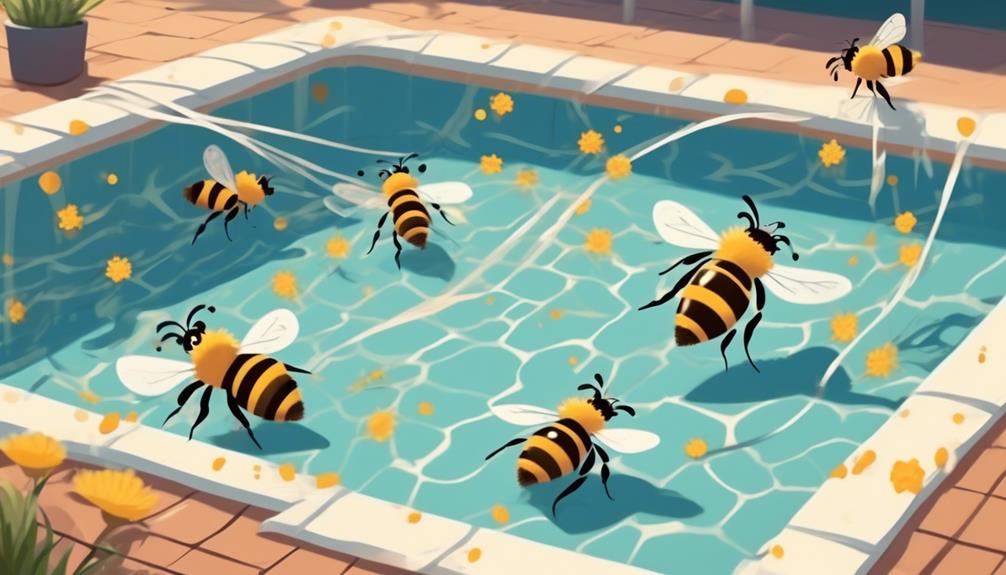
If you're looking to deter bees from your saltwater pool, several effective measures can be implemented. First, consider using a pool cover when the pool isn't in use. This not only prevents bees from accessing the water but also reduces evaporation, conserving water in the long run.
You can also plant bee-repellent flora around your pool area. Species like citronella, mint, and marigold are known to deter bees. Remember, bees are attracted to sweet and floral scents. Therefore, avoid using such fragrances near your pool.
Water source management is crucial too. Bees seek pools when they can't find other water sources. So, provide an alternative water source, like a shallow bird bath with stones for them to land on, away from the pool area. This will divert the bees' attention and keep your pool bee-free.
Lastly, routine maintenance plays a pivotal role. Regular cleaning, checking for possible hive spots, and safe removal if found, are integral to a bee-proof pool. However, remember not to harm the bees as they're critical pollinators in our ecosystem. Instead, consider professional help for hive removal. Follow these steps, and you'll significantly reduce your pool's appeal to bees.
Conclusion
So, are honey bees attracted to salt water pools? Not necessarily. While they do need water to survive, salt water isn't their first choice. It's more about the pool's proximity to their hive and the lack of other water sources.
If your pool is a bee magnet, it's crucial to take preventative measures. Keep bees at bay by covering your pool, providing an alternative water source, or seeking help from a local beekeeper.


